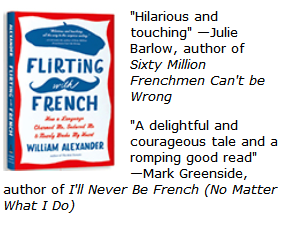I received an e-mail yesterday from a Frenchwoman which ended with the salutation, Bon dimanche! And I thought, that's a first -- no one has ever wished me a "good Sunday." But once thing I've noticed (and like) about the French, they are always wishing you a bon something or other.
When you enter a shop you are greeted with bonjour; when you leave it, bonne journée. In the afternoon, you may be wished a bon après-midi or its more loquacious cousin, passez un bon après-midi. Late in the afternoon, come some magical time that only the French know, bonjour becomes bonsoir when you come and bonne soirée when you go. In between, at dinner, you may be wished bon appétit before you eat and bonne continuation during. At the end of the meal, the waiter might wish you a bonne fin de repas or even (and this one is a little too clinical for my taste) a bonne fin de digestion.
My favorite, though is bon courage!, sometimes shortened to just Courage! which, depending on the situation, can apparently mean anything from “have a nice day no matter what may come” to an ominous “good luck,” sometimes with a nuance of “good luck, pal — you’re going to need it!” I suspect in my case, particularly when I trying to speak French, it’s usually the last. And I do need it.



